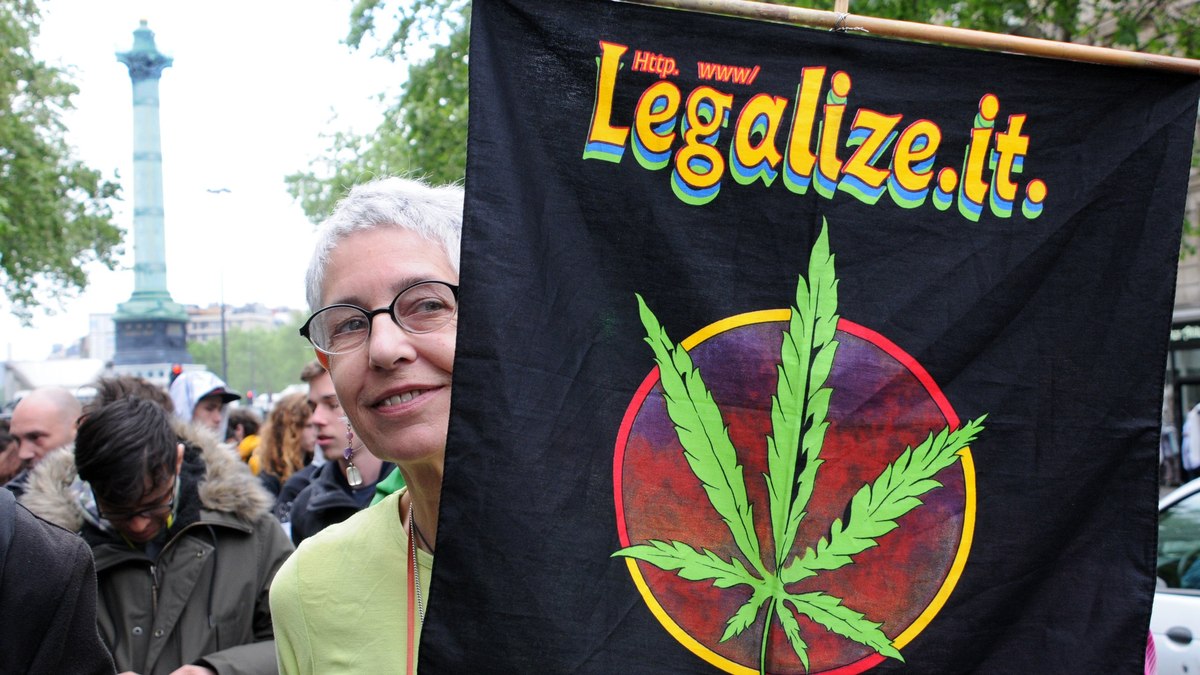Almost as regularly as rain in June a group of experts in the field of drugs policy writes a report arguing that the current approach of treating drug-taking as a criminal activity isn’t working and that we need to consider something different. Now, two bodies in the field of public health have come together to say the same thing. The differenc this time is they are proposing something really radical: the decriminalisation of all drug-taking, not just of the supposedly less harmful drugs such as cannabis. Are they right?
British policy on drug-taking has not changed in essence for nearly fifty years. Ever since the 1971 Act it has been a criminal offence to take drugs. The penalty for taking Class A drugs, such as heroin and cocaine is up to seven years in prison and an unlimited fine; for Class B drugs it is up to five years in prison.
But this whole approach of regarding drug-taking as a criminal activity is fundamentally wrong-headed according to this week’s report produced by two bodies concerned with public health, the Royal Society for Public Health and the Faculty of Public Health. Their members comprise public health experts in the NHS and in local councils.
Their argument is that we need to prioritise reducing the harm caused by drug-taking over the attempt to cut the level of drug-taking. They argue that although, under the current system, cannabis use has fallen over the last decade, the number of people in Britain taking Class A drugs has increased and the number of drug-related deaths has doubled since the 1990s.
What they propose is that the taking of drugs of all classes should be decriminalised, although those who make and deal in drugs should continue to be prosecuted. Shirley Cramer, chief executive of the Royal Society for Public Health, said: “The ‘war on drugs’ has failed. The time has come for a new approach where we recognise that drug use is a health issue, not a criminal justice issue, and that those who misuse drugs are in need of treatment and support, not criminals in need of punishment.” She added that drug-taking is “an addiction in the same way that people can be addicted to alcohol or tobacco. We don’t make a moral judgment on those.”
The report draws inspiration from the example of Portugal which decriminalised drug-taking in 2001. Since then recreational drug-use has not soared, as sceptics predicted, but fallen. Both the number of teenage problem users and the level of HIV rates have dropped. And the number of people using “legal highs” has become the lowest in Europe. Most importantly, drug-related deaths have been cut by 80%: in Portugal there are three deaths per million caused by drug-taking, compared with ten in the Netherlands and 44.6 per million in the UK.
Portugal’s drug chief, Joao Goulao, echoed Ms Cramer’s view. He said: “Thinking about drugs is still too much linked to moral approaches. It’s seen as a self-inflicted disease. But obesity and diabetes are also linked to behaviour and you don’t have the same moral charge when looking at those health problems.”
The approach suggested by the public health professionals is being supported by some elements of the police service. Many police authorities tend to turn a blind eye to recreational use of drugs like cannabis. They issue warnings rather than prosecute offenders. But they don’t like having crimes on the statute book that they are not trying to enforce. That’s their job, after all. At the same time, it is recognised that sending drug-takers to prison is likely only to make matters worse. Drug-taking is endemic in prisons so prisoners are likely to emerge from custody more addicted than before. They may also have got themselves involved inside prison with gangs of criminal dealers.
Ron Hogg, the police and crime commissioner for Durham, where the police no longer go after people who grow cannabis for their own use, supports the approach promoted by the public health experts. He said: “Vulnerable people should be supported to change their lifestyles and break their habits rather than face criminal prosecution at great expense to themselves and to society.”
But the report’s recommendations were strongly criticised by those who believe that selling the pass on criminalisation is bound to lead to increase use of drugs. Kathy Gyngell, of the Centre for Policy Studies, said: “I can’t think of anything more irresponsible than decriminalisation in terms of the serious risk of rising drug use in young people. The proposals are naïve and fly in the face of what happens when you decriminalise.”
Some, however, argue that far from being too radical, the report is not radical enough. They say that obviously drug-taking will continue and leaving the supplying and dealing of drugs in the hands of criminal gangs adds to their power, bringing with it all the additional social problems those gangs create. Look at Mexico, they say, or, closer to home, Amsterdam, which has become a hub of organised crime, trafficking guns and people as well as drugs. The logical next step after decriminalising the use of drugs is state regulation of their manufacture and supply. In other words, drugs should become like alcohol and tobacco in every respect.
The government has made it clear it is not going to be drawn down this path and continues to support the criminalisation of drug use. Is it right? Or should we be following the advice of public health experts in making as our priority reducing the harm caused by drug use rather than trying to cut that use by persisting in regarding it as a crime.










